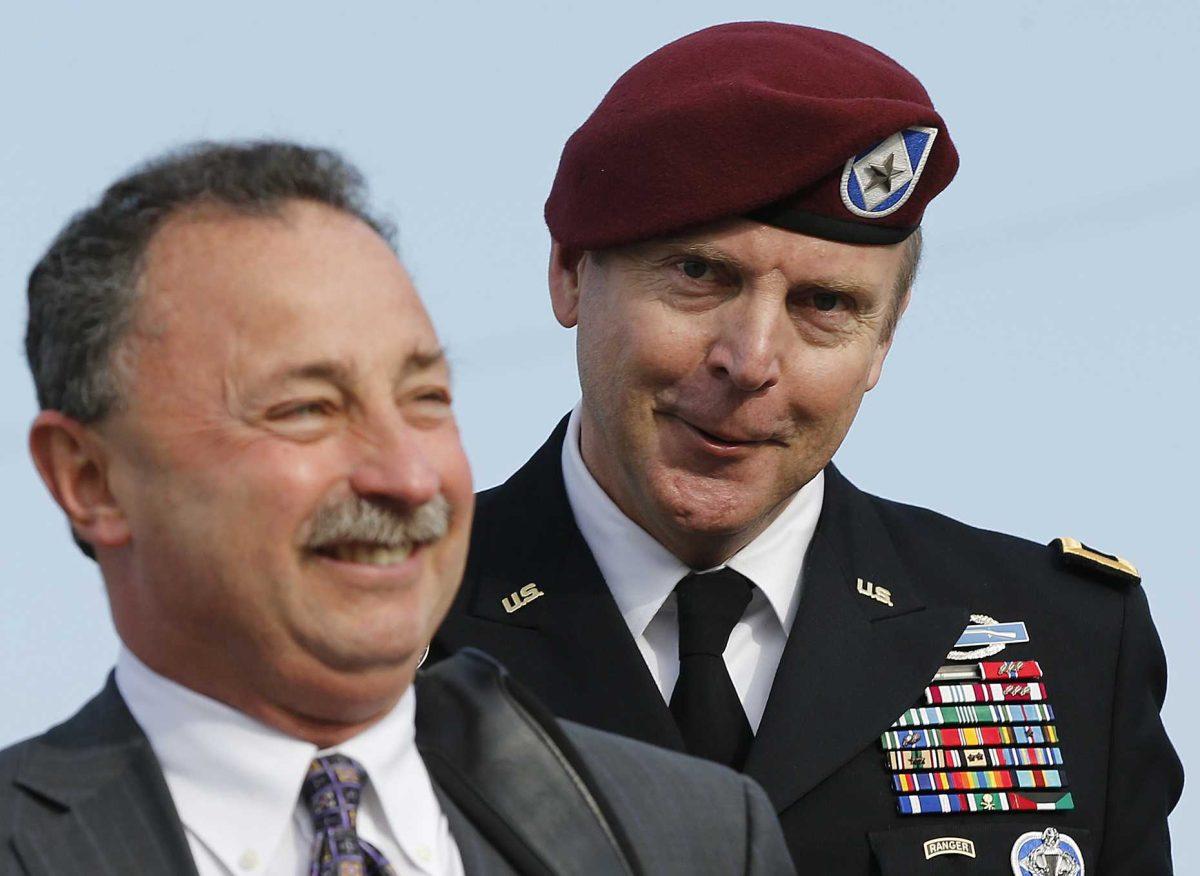If you’re in the military and you want to sexually assault someone, it’ll cost you around $20,000.
Early last week, Army Brig. Gen. Jeffrey Sinclair, the highest-ranking officer to have ever been court-martialed, pleaded guilty to mistreating his former mistress, a captain in the military, requesting explicit photographs from female officers and other lesser charges.
In exchange for the guilty plea, prosecutors dropped a sexual assault allegation against him. Sinclair allegedly forced the female captain to perform oral sex on him and often threatened to kill her and her family.
Instead of any jail time, Sinclair gets to keep his pension and must pay a fine of only $5,000 for four months.
While Sinclair is the one to blame here, I am disturbed that the prosecution decided the sexual assault and abuse of a female military officer was not worth bringing to court.
Sadly, Sinclair’s case is not the only case of the mistreatment of female military officers.
Because rape and sexual assault are prominent in military life, soldiers are required to take a Sexual Harassment/Assault Response and Prevention (SHARP) program to raise awareness and prevent such heinous crimes from happening.
However, think of it as the University’s current My Student Body requirement. Even though My Student Body quizzes students’ knowledge on alcohol, drug and sexual abuse, all three of those issues are still prevalent on campus and in places like Tigerland.
When someone signs up for the military, they agree to abide by certain standards of conduct to represent and defend our nation. Sexual assault is not covered under these standards, however.
Ashley Wright, an international studies freshman and a member of the University’s Reserve Officers’ Training Corps (ROTC), said in an email that sexual assault is “incompatible with Army Values — loyalty, duty, respect, selfless service, honor, integrity, and personal courage.”
When asked if the overwhelming amount of assault against military women worries her, Wright said, “As a female, I understand that sexual assault and harassment is something I have to be aware of throughout my career. I have to be careful to avoid situations that could cause a problem.”
If military members have to constantly be aware of their surroundings, even around their peers, how are they going to be able to concentrate on the tasks at hand?
In 2012, anonymous active-duty members of the military revealed 26,000 occurrences of unwanted sexual conduct, including rape and coerced sexual contact. Even more disturbing, women in the military are more likely to be raped by a fellow soldier than killed by an enemy.
Assault against male military members is not unheard of, either. Although women are more likely to be assaulted, male officers are often vulnerable to assault committed by other men. According to the Pentagon, 53 percent of the sexual assault cases in 2012 involved attacks on men.
In Wright’s opinion, programs like SHARP teach that it is “extremely necessary to become aware of how severe sexual assault and harassment in the Army is.”
Awareness is one baby-step closer to solving issues. Being aware that alcohol impairs judgement doesn’t stop you from shooting Jägerbombs at Fred’s in Tigerland.
It is truly a shame that the men who swear to protect our nation take advantage of their power to abuse, harass and victimize their female and male peers. I cannot fully respect America’s military if it continues to perpetuate a culture where rape and other forms of abuse are unworthy of prosecution, as seen in Sinclair’s trial.
Hopefully, programs like SHARP will educate an entirely new generation of military members about the severity and seriousness of these disturbing crimes.
SidneyRose Reynen is an 18-year-old film and art history freshman from New Orleans.
Opinion: Sexual assault still a major issue in U.S. military
March 25, 2014
Brig. Gen. Jeffrey Sinclair, right, who admitted to inappropriate relationships with three subordinates, arrives at the courthouse with attorney Richard Scheff for sentencing Fort Bragg, N.C., Thursday, March 20, 2014. (AP Photo/Ellen Ozier)





